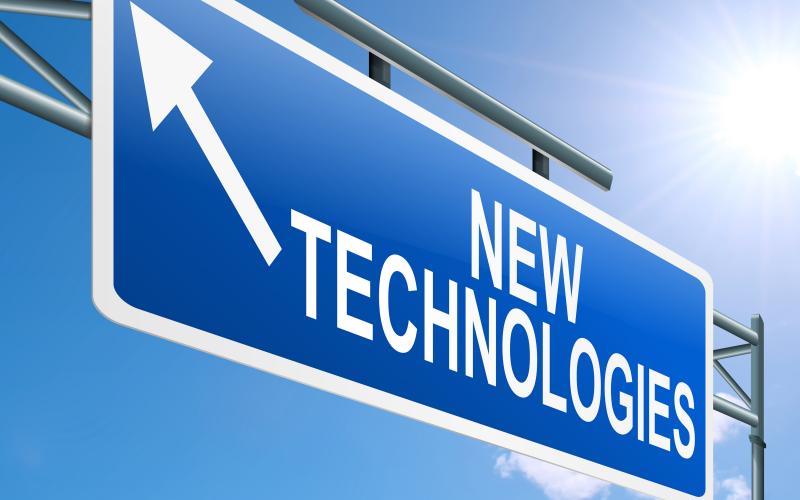The Future of Technology: Emerging Trends Shaping Our World
The landscape of technology is constantly evolving, driving profound changes across various sectors. From artificial intelligence (AI) and machine learning (ML) to biotechnology and renewable energy, new technological advancements are poised to revolutionize the way we live, work, and interact with the world. This article explores some of the most promising emerging technologies and their potential impact on society.
Artificial Intelligence and Machine Learning
Artificial Intelligence (AI) and Machine Learning (ML) are at the forefront of technological innovation. AI, the simulation of human intelligence in machines, and ML, a subset of AI focused on data-driven learning, are transforming industries such as healthcare, finance, and transportation.
- Healthcare: AI and ML are enhancing diagnostic accuracy and personalized treatment plans. Machine learning algorithms can analyze medical data to predict disease outbreaks, while AI-powered imaging tools assist doctors in diagnosing conditions like cancer with greater precision.
- Finance: In the financial sector, AI-driven algorithms are improving fraud detection, automating trading processes, and providing personalized financial advice. These technologies help financial institutions enhance security and optimize investment strategies.
- Transportation: Autonomous vehicles, powered by AI, are set to revolutionize transportation by reducing accidents caused by human error. AI is also being used to optimize traffic management systems, leading to more efficient urban mobility.
Biotechnology and Genomics
Advancements in biotechnology and genomics are opening new frontiers in medicine and agriculture. The ability to manipulate genetic material is leading to breakthroughs that were once thought impossible.
- Gene Editing: CRISPR-Cas9, a revolutionary gene-editing technology, allows scientists to modify DNA with unprecedented precision. This technology holds the promise of curing genetic diseases, creating disease-resistant crops, and even combating climate change by engineering more resilient plant species.
- Personalized Medicine: Genomic sequencing is becoming more accessible, enabling personalized medicine tailored to an individual’s genetic makeup. This approach improves the efficacy of treatments and minimizes adverse reactions.
- Agricultural Biotechnology: Genetically modified organisms (GMOs) are being developed to increase crop yields, resist pests, and tolerate harsh environmental conditions. These advancements are crucial for ensuring food security in a changing climate.
Renewable Energy and Sustainability
The transition to renewable energy sources is essential for addressing climate change and reducing our reliance on fossil fuels. Technological advancements in this area are making renewable energy more efficient and accessible.
- Solar Power: Innovations in photovoltaic technology are increasing the efficiency and affordability of solar panels. The development of solar cells that can capture a broader spectrum of sunlight and store energy more effectively is driving the widespread adoption of solar energy.
- Wind Energy: Advances in wind turbine design, including larger and more efficient turbines, are enhancing the viability of wind power. Offshore wind farms, in particular, have significant potential to generate substantial amounts of clean energy.
- Energy Storage: Energy storage technologies, such as advanced batteries and supercapacitors, are critical for integrating renewable energy into the grid. These technologies enable the storage of excess energy generated during peak production times for use during periods of low production.
Quantum Computing
Quantum computing represents a paradigm shift in computational power. Unlike classical computers, which use bits to process information, quantum computers use quantum bits (qubits) that can exist in multiple states simultaneously. This capability allows quantum computers to solve complex problems much faster than traditional computers.
- Cryptography: Quantum computing has the potential to break current encryption methods, prompting the development of quantum-resistant cryptographic algorithms. This is crucial for maintaining data security in the future.
- Drug Discovery: Quantum computers can simulate molecular interactions at an unprecedented level of detail, accelerating the discovery of new drugs and materials. This could lead to more effective treatments for diseases and the development of innovative materials with unique properties.
- Optimization: Quantum computing can solve complex optimization problems that are currently intractable for classical computers. This has applications in logistics, supply chain management, and financial modeling, among other fields.
5G and the Internet of Things (IoT)
The rollout of 5G networks is set to revolutionize the Internet of Things (IoT), connecting billions of devices and enabling real-time data exchange at unprecedented speeds.
- Smart Cities: 5G and IoT technologies are transforming urban areas into smart cities. IoT sensors can monitor and manage infrastructure, reducing energy consumption, improving waste management, and enhancing public safety.
- Healthcare: Wearable devices and remote monitoring systems powered by 5G and IoT are improving patient care. Real-time data transmission allows healthcare providers to monitor patients’ vital signs and respond promptly to emergencies.
- Industry 4.0: In manufacturing, IoT devices and 5G connectivity are driving the Industry 4.0 revolution. Smart factories equipped with connected machinery and real-time analytics are optimizing production processes, reducing downtime, and increasing efficiency.
Blockchain and Decentralized Technologies
Blockchain technology, known for underpinning cryptocurrencies like Bitcoin, is finding applications beyond digital currencies. Its decentralized and transparent nature offers solutions for various sectors.
- Supply Chain Management: Blockchain can enhance supply chain transparency by providing an immutable record of product journeys from origin to consumer. This helps prevent fraud, ensure product authenticity, and improve traceability.
- Healthcare Records: Blockchain technology can secure medical records, ensuring patient privacy and data integrity. Patients can have greater control over their health data, and healthcare providers can access accurate and up-to-date information.
- Decentralized Finance (DeFi): DeFi platforms leverage blockchain to offer financial services without intermediaries. These platforms provide access to banking services for unbanked populations and create new opportunities for investment and lending.
Conclusion
The rapid pace of technological advancement is reshaping our world in profound ways. Artificial intelligence, biotechnology, renewable energy, quantum computing, 5G, and blockchain are just a few of the emerging technologies that hold the potential to transform industries and improve our quality of life. As these technologies continue to develop, it is crucial to address the ethical, social, and environmental implications they bring. By fostering innovation while ensuring responsible use, we can harness the power of these technologies to build a sustainable and equitable future.



